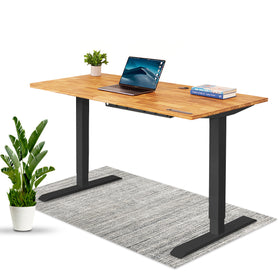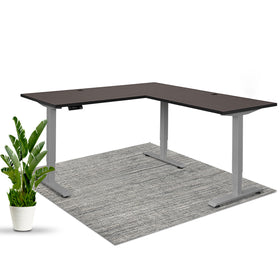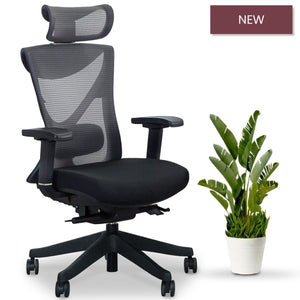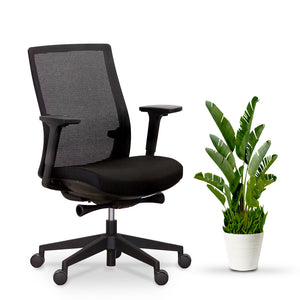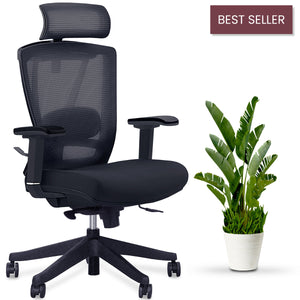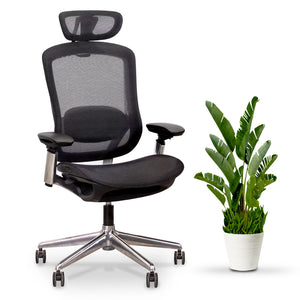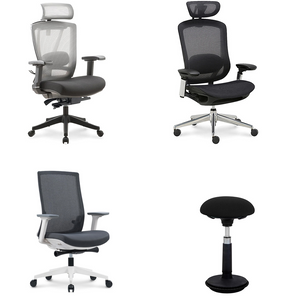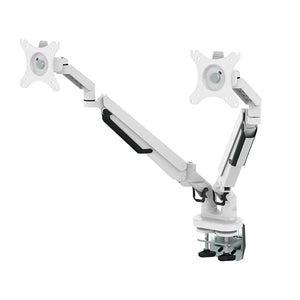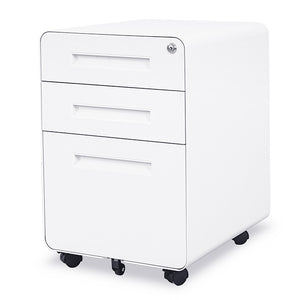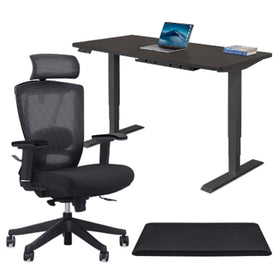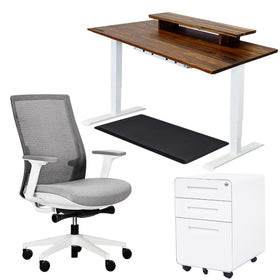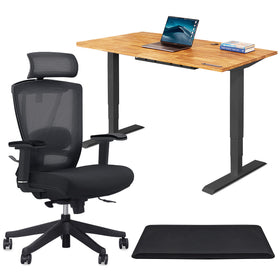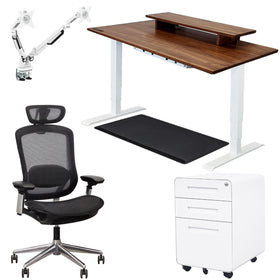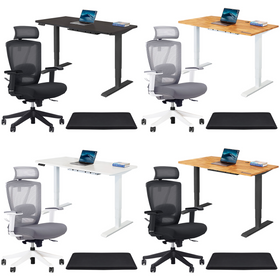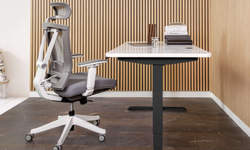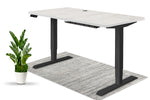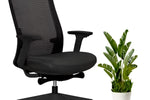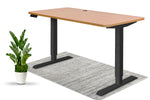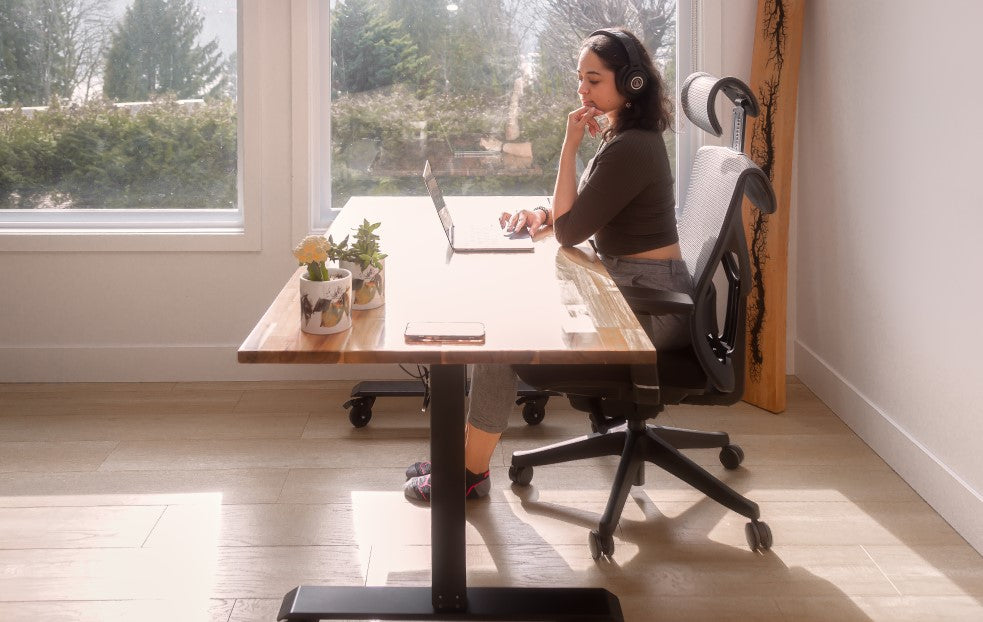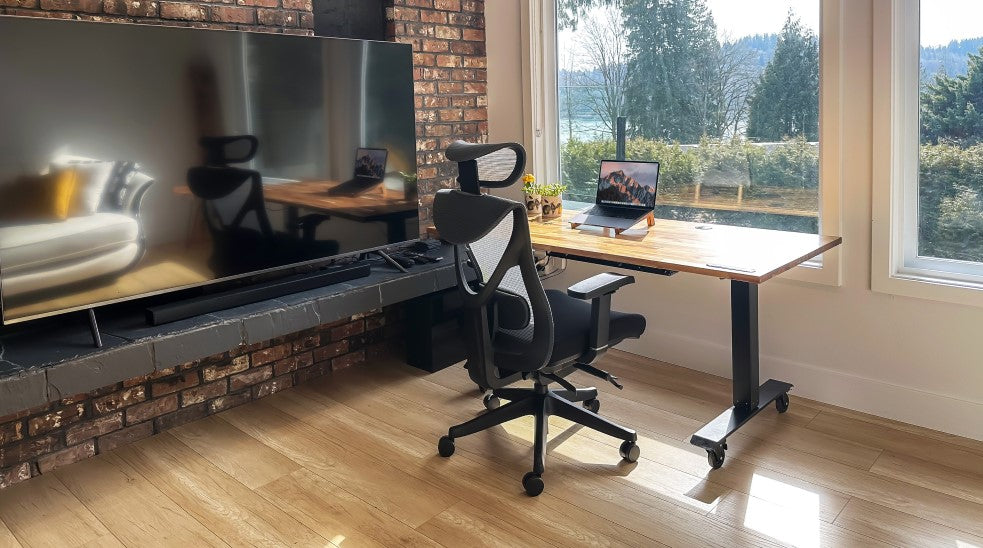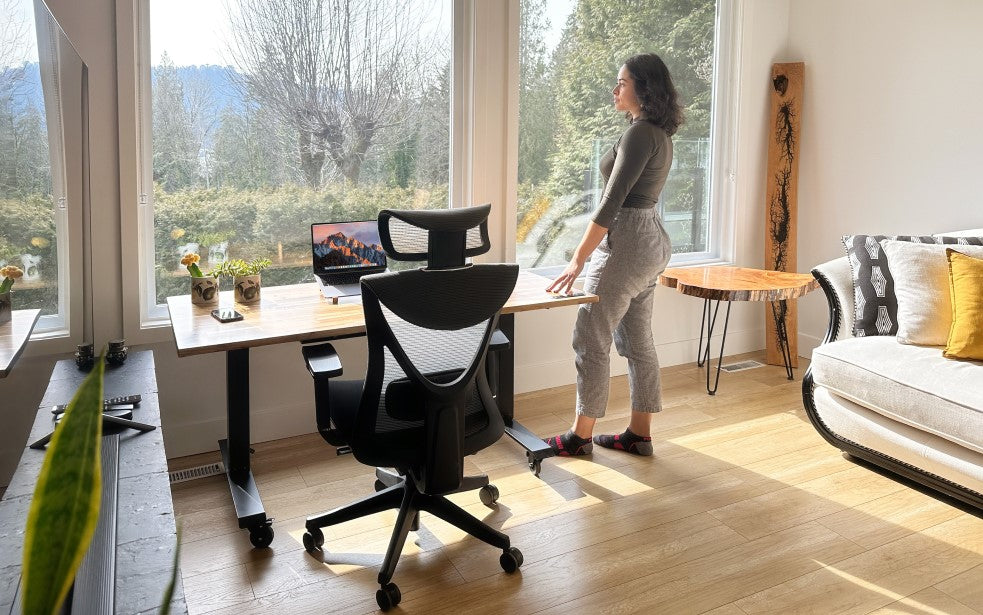-
Leather vs Mesh Office Chairs: The Pros and Cons April 11, 2024
-
7 Easy Soundproofing Hacks for Your Home Office April 2, 2024
-
How Prolonged Sitting Silently Damages Your Health March 21, 2024
-
How to Clean & Maintain Solid Wood Office Furniture March 7, 2024
-
AeryChair - Ergonomic Chair530 CAD
-
Standing Office DeskFrom835 CAD
-
GrinChair - Ergonomic Chair380 CAD
-
Home Office Standing DeskFrom715 CAD
How Prolonged Sitting Silently Damages Your Health
We've all been cautioned about the negative impacts that prolonged sitting can have on our health, yet the reality is that many professions require us to spend countless hours seated in front of a computer screen each day. This sedentary lifestyle, often slipping under our radar, poses significant risks to our health, silently chipping away at our well-being. The truth is, the human body is not designed for such inactivity; it thrives on movement and engagement, meaning that our modern work practices are at odds with our physiological needs. At EFFYDESK, we're not just aware of these issues; we aim to address the health problems associated with prolonged sitting, such as back pain, poor blood circulation, and a host of other related ailments, by offering ergonomic solutions that encourage movement and improve posture.
Understanding the root causes and consequences of a sedentary lifestyle allows us to tailor interventions more effectively. Let’s delve into the nuances of how a sedentary lifestyle affects us, and explore some concrete strategies and insights on how to mitigate these effects, ensuring a healthier and more vibrant life both in and out of the workplace.
The Hidden Health Costs of Sitting
The human body is inherently built for movement and activity. Our ancestors roamed vast distances, engaged in physical labor, and moved continuously throughout the day. However, modern lifestyles, particularly in the context of work and technology, have drastically shifted this dynamic, often confining us to our chairs for extended periods. This shift towards a predominantly sedentary lifestyle is a stark departure from our natural tendencies and has several detrimental effects on our health:
Cardiovascular Health: Prolonged sitting can lead to increased blood pressure and elevated cholesterol levels, contributing to cardiovascular diseases. The lack of movement impedes blood circulation, which is essential for transporting nutrients and oxygen throughout the body. Additionally, this sedentary behavior has been linked to the development of insulin resistance, a precursor to type 2 diabetes, further exacerbating cardiovascular risk. Regular interruptions to sitting with even light physical activity can significantly reduce these risks, which is why it’s essential to integrate movement into our daily routines.
Weight Gain and Obesity: Sitting for long hours slows down the metabolism, reducing the body's ability to regulate blood sugar and break down body fat. This can lead to weight gain and, over time, obesity, a risk factor for several chronic conditions. The decreased calorie burn associated with prolonged sitting makes it harder to maintain a healthy weight, potentially leading to a caloric surplus. In fact, nearly 50% of Americans report having gained weight as a result of working in an office setting. Incorporating standing desks or taking regular walk breaks can help increase calorie expenditure throughout the day, combatting the effects of a sedentary lifestyle.
Musculoskeletal Disorders: Constant sitting, especially in an ergonomically unsound position, can lead to back pain, neck strain, and a host of other musculoskeletal problems. The strain on the lower back from prolonged sitting can lead to chronic pain and discomfort. Over time, this can result in the weakening of the spinal structures and contribute to issues like herniated discs. Ergonomically designed furniture that supports the natural curve of the spine can greatly reduce the risk of developing such disorders, emphasizing the need for proper seating and desk setups. Many workers claim that incorporating an ergonomic desk chair into their workspace has made it possible to endure prolonged sitting while avoiding back pain.
Mental Health: There's also a psychological component to consider. Extended periods of inactivity can affect mental health, contributing to anxiety and depression. Movement and physical activity are known to release endorphins, which have mood-lifting properties. Furthermore, the isolation and monotony associated with sitting for extended periods can exacerbate feelings of loneliness and disconnection. Creating opportunities for movement and social interaction throughout the day can have a profound positive impact on mental well-being, highlighting the intertwined nature of physical activity and psychological health.
Breaking the Cycle
The risks associated with prolonged sitting—ranging from increased susceptibility to chronic diseases to the degradation of musculoskeletal health—display an urgent need for intervention. These concerns are not just individual health issues but are becoming increasingly recognized as significant public health challenges, given the widespread nature of sedentary jobs and lifestyles. Addressing these risks requires a multi-faceted approach, blending individual actions with changes in workplace culture and design. Here are some strategies designed to counteract the effects of prolonged sitting, emphasizing the importance of adopting a holistic view towards health and well-being:
Regular Breaks: Make it a habit to take short breaks every hour. A brief walk, stretching, or even standing up can reinvigorate the body and mind, improving circulation and reducing muscle tension. These breaks not only refresh your mental focus but also help mitigate the adverse effects of prolonged sitting by activating different muscle groups and stimulating blood flow. Setting reminders to take these breaks can ensure consistency, turning it into a beneficial routine that enhances productivity and health.
Ergonomic Solutions: Investing in ergonomic office equipment, such as adjustable chairs and standing desks, can significantly reduce the strain on your body. These tools encourage better posture and allow for movement and flexibility, reducing the risk of musculoskeletal problems. Ergonomic furniture is designed to support the natural curvature of your spine, promoting a healthier sitting position that can alleviate pain and discomfort. By adapting your workspace to fit your body's needs, you're taking a proactive step towards maintaining your health and well-being.
Exercise and Activity: Incorporating regular physical activity into your routine is crucial. Whether it's a morning workout, a post-work dinner walk, or weekend sports, staying active combats the effects of sitting and boosts overall health. Regular exercise not only strengthens muscles and improves cardiovascular health but also enhances mood and energy levels, making it easier to tackle daily tasks. Finding activities you enjoy ensures that you'll stick with them, making exercise an integral part of your life rather than a chore.
Mindful Sitting: Being aware of your posture while sitting can also make a difference. Ensuring that your back is supported, your feet are flat on the ground, and your screen is at eye level can help minimize strain. Mindful sitting involves regularly checking in with your body to correct any slouching or poor posture habits. Implementing small adjustments, such as using a lumbar support pillow or adjusting the height of your chair, can have a significant impact on reducing the strain on your back and neck, promoting a healthier and more comfortable work environment.
Embracing a Dynamic Work Environment
The move towards more dynamic work environments is gaining momentum. Companies are recognizing the importance of promoting a culture of health and movement. From flexible furniture solutions that encourage standing and movement to wellness programs that prioritize employee health, the focus is shifting towards creating spaces that foster well-being.
The silent dangers of prolonged sitting are profound, affecting various aspects of our health. By understanding these risks and adopting measures to mitigate them, we can protect our well-being. It's about making conscious choices towards a more active lifestyle, both in and out of the workplace. If you are looking for ergonomic furniture and accessories to help combat the effects of prolonged sitting, browse our selection today.







